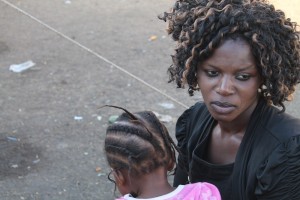More than 200 Burundian and Congolese men, women and children face an uncertain future as the Chatsworth camp where they have been sheltering faces closure on Tuesday. The camp has been a temporary home to thousands of refugees following a spate of xenophobic attacks around the country over three months ago. Thousand of others have been repatriated while others have reintegrated into their communities. The remaining occupants of the camp, many of whom lost all their possessions in the attacks, are left with only two options - return to the South African communities that attacked them to begin with or return to their war-torn countries. QINISO MBILI visited the camp to speak to those who remain.
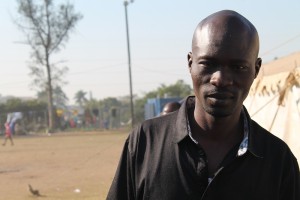
“I do not know where to go when this camp closes. I no longer want to be here. I am tired of eating the same food every time. I have run out of the money I had saved and have started selling my clothes to make a living, my clothes are now running out. Going back to Congo or the South African community is not a choice for me. I really don’t know what I will do when Tuesday comes. My wish is that the UNHCR intervenes and takes us to other countries because we cannot afford to do that ourselves.
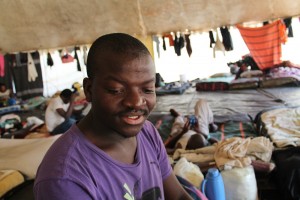
I feel like I am a sub-human being. My own country doesn’t want me, the South African community does not want me and this camp is being closed. I am prepared to fight for my right to be here when Tuesday comes. The South African state granted me refugee status; they know what is happening in my country. I can’t go back there. I also can’t go back to the community. I was attacked in the 2008 attacks, and then I continued to stay in the community thinking it was the last time something like that would happen but I was victimised again. Now how do I know that it won’t happen again if I return to the community? I am still traumatised; the camp is my only option for now. If they take the tents away, I will lay my [mattress] here and stay here.
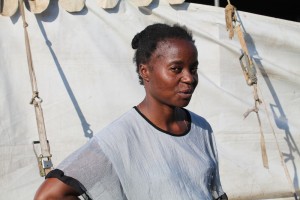
I absolutely don’t know what will happen to me now. The only thing I can do for now is wait until that day comes. Even if I was brave enough to go back to the community, how will I make a living? I lost everything; they destroyed my stall, burnt my shack and chased me away. I literally have no income; I have about three outfits only. When the camp closes I will have to build a whole new life and that is a hard thing to do when one of your four children is merely one year old. The closing of the camp will mean that I lose support from Red Cross, which has been my last hope at this point.
Bipemacho Benedicta, 26, DRC
I have been stressing ever since I heard about the closure of the camp, I have become sick. I don’t know if it’s because of the stress. My children are also sick; I don’t know where I will go with them. The choices on offer are not wide enough; going back to the community is almost as good as throwing myself back to the war-torn Congo. I feel rejected; our only hope now lies in the UNHCR, to take us to any other country where freedom is ensured.
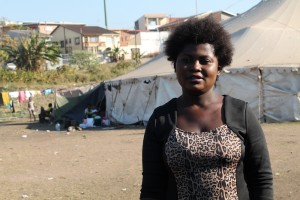
Even foreigners have rights, but these rights are being squashed. We are clearly still traumatised, we saw a lot of horrific things in the community; how are we to go back there while we’re still scared? Life is hard here in the camp but I know it will be even harder without the camp. I was staying in a flat in Umbilo and I can never go back there. The only thing I could possibly do is relocate to another part of the province but that will be very hard to do without any money. The only place I know is Durban. If I knew any other place and had money, I would go there. We are left with no choice but to take a chance with the community.

![Tent at Chatsworth xenophobia camp June 25 [slider]](https://www.thedailyvox.co.za/wp-content/uploads/2015/06/Tent-at-Chatsworth-xenophobia-camp-June-25-slider.jpg)
